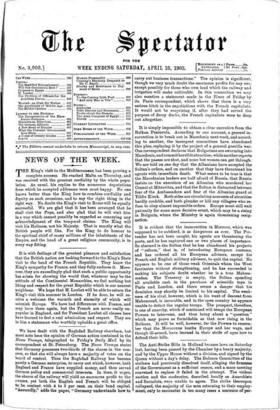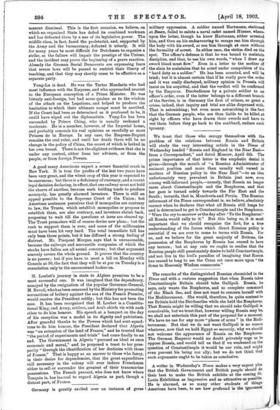The Anti-Strike Bills in Holland became laws on Saturday last,
having been passed by the Chamber by a heavy majority, and by the Upper House without a division, and signed by the Queen without a day's delay. The Defence Committee of the strikers had previously dissolved itself, alleging the firmness of the Government as a sufficient reason, and a mass meeting convened to replace it failed in the attempt. The violent section and the moderates, described locally as Anarchists and Socialists, wers unable to agree. The strike thereupon collapsed, the majority of the men returning to their employ- ment; only to encounter in too many cases a sentence of per.
=anent dismissal. This is the first occasion, we believe, on which an organised State has defied its combined workmen and has defeated them by a use of its legislative power. The middle class, in fact, faced the proletariat, and, supported by the Army and the bureaucracy, defeated it utterly. It will for many years be most difficult for Dutchmen to organise a strike, as the failure will impair the prestige of the Unions, and the incident may prove the beginning of a grave reaction. Already the German Social Democrats are expressing fears that severe laws will be passed to restrict their liberty of teaching, and that they may shortly cease to be effective as a separate party.







































